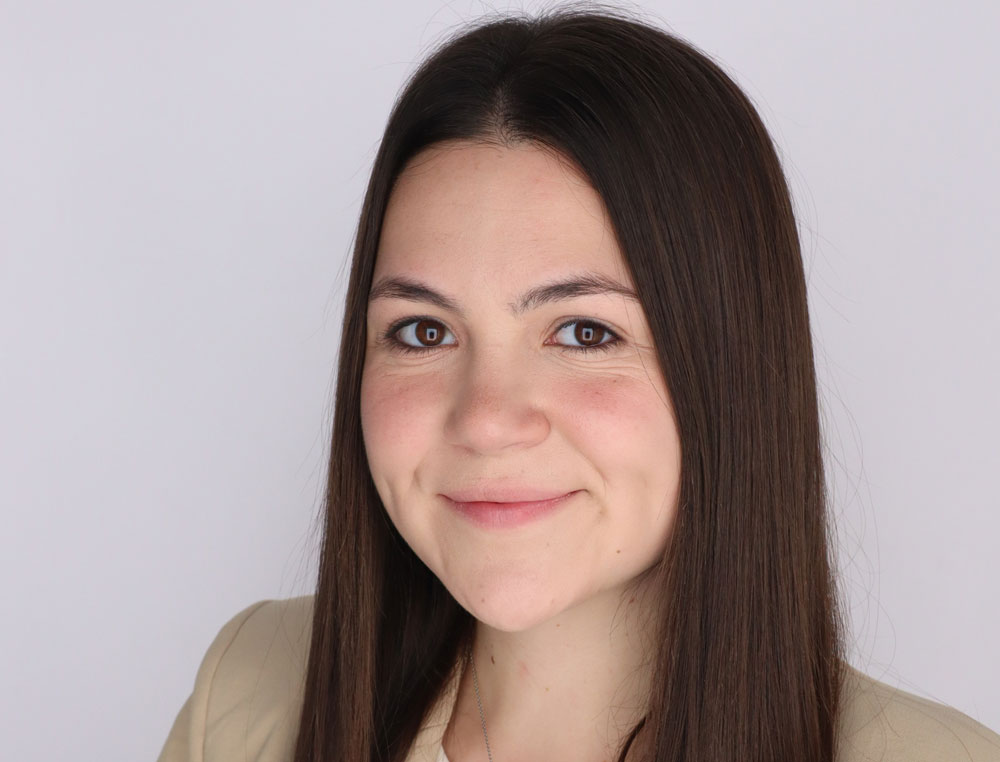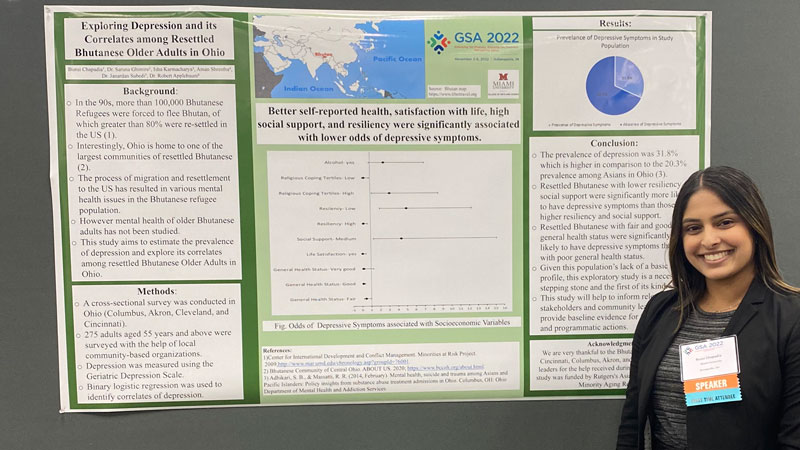Research opportunities inspire Speech Pathology and Audiology major to improve educational materials for children
Hannah Seinfeld ‘23 works to implement DEI initiatives within children’s educational apps for teachers and speech pathologists.

Research opportunities inspire Speech Pathology and Audiology major to improve educational materials for children
After taking two speech pathology classes taught by Assistant Professor Arnold Olszewski, senior Hannah Seinfeld felt inspired to get involved in his research developing feasible, evidence-based language and literacy interventions for young children. Seinfeld is now working hard on developing a rubric that evaluates the quality of educational apps regarding diversity, equity, and inclusion.
In addition to her major in Speech Pathology and Audiology, Seinfeld is also minoring in Child Studies and Youth Development and Disability Studies.
“In high school, one of my best childhood friends was on the autism spectrum,” Seinfeld said. “Through that exposure, I learned about the field of speech pathology. There is something cool about being able to help people regain access to communication.”
Seinfeld first got involved in research by joining Olszewski’s Children’s Acquisition of Language and Literacy (CALL) Lab during her sophomore year. The lab focuses on how children acquire and learn their basic language and literacy skills, and Seinfeld joined in developing a rubric that evaluates the quality of educational apps in the digital market.
This past summer, Seinfeld became a part of Miami’s Undergraduate Summer Scholars (USS) program, a 9-week intensive program dedicated to research. She worked closely with Dr. Olszewski to expand upon the research involving educational apps.
“We’re seeing that kids learn information better when they are represented in what they’re learning,” she said. “There’s a big shift in that with picture books, but not as much in apps. So I was interested in figuring out what forms of diversity and inclusion we should see in apps.”
Through the USS program, Seinfeld was able to lead a focus group of speech pathologists and talk about the concepts she had spent time creating and studying.
“What I enjoy about this research is that it’s very practical,” Seinfeld said. “For example, we are working on getting this rubric out to the public. We want it to be accessible, easy to use, and easy to access. Our hope is that this would help teachers and parents, that you could easily go through this rubric after downloading an app and ask, ‘does it hit this? Or this?’”
She added that the goal of the rubric Seinfeld is helping to develop is to aid parents and teachers in making educated and informed decisions on whether an app is appropriate for their students or children.
Through these research opportunities, Seinfeld was able to develop skills she wouldn’t have been able to without these experiences. She explained that her experiences have made her become more inquisitive, more diligent, and most of all, curious.
“I didn’t have those skills to pick up this information before,” she said. “This has also given me so much valuable experience, such as talking to speech pathologists. It’s given me transferable skills and field-applicable knowledge. There’s something you can gain from hands-on experience that you just can’t get from listening to a lecture.”
After graduation this May, Seinfeld plans to attend graduate school in speech pathology. She would love to work with kids and people with disabilities.
